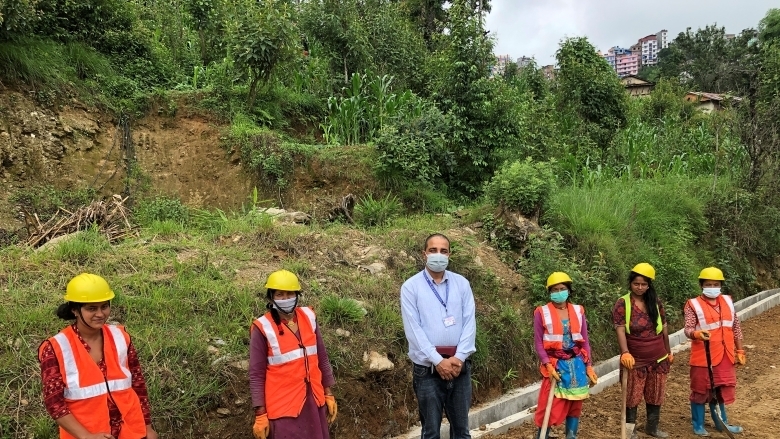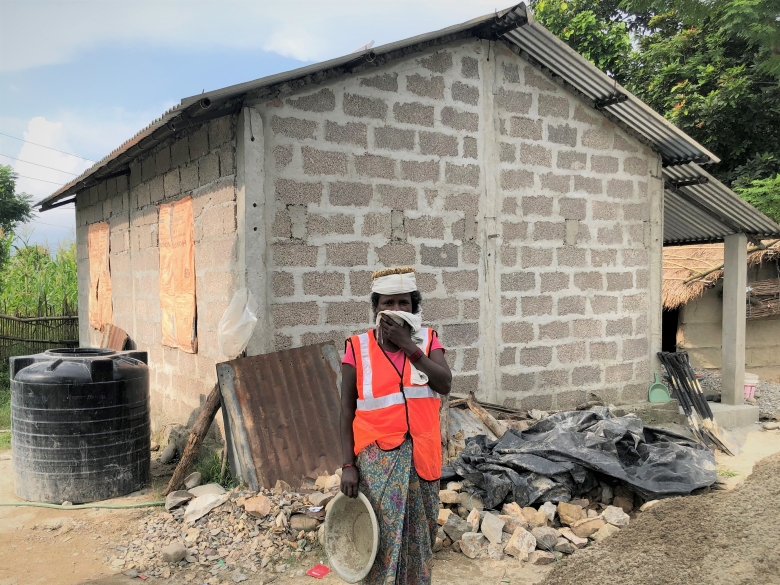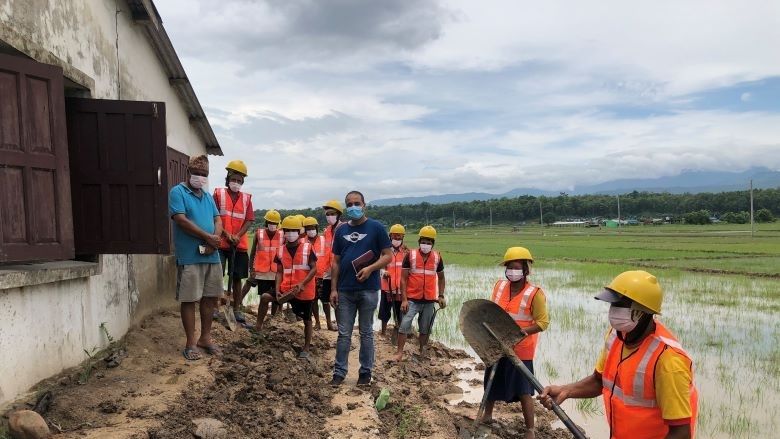such as financial management, procurement, revenue collection, and asset management.
The project also supports the post-COVID-19 economic recovery through labor intensive public works, delivering small scale community infrastructure maintenance and rehabilitation projects in roads, sanitation, water, environment, and parks through cash-for-work schemes.
from households that are most affected by the pandemic in these municipalities.
Through the implementation of sub-projects, municipalities have provided much needed cash benefits to support targeted beneficiaries. An unskilled wage worker could receive Rs 33,500 (approximately $285) for 50 days of work, while skilled wage workers could receive Rs. 47,500 (approximately $404).
From April to July 2021, the municipalities were able to move swiftly, completing more than 200 sub-projects in small-scale infrastructure works, despite intermittent COVID-19 related lockdowns during this time.
The small-scale infrastructure maintained through the project include road and drainage rehabilitation, water and sanitation works, health and education infrastructure, environment protection, and rehabilitation of public spaces. This work contributes to improving the quality of and access to services in the municipalities.
Meghiya took on several roles as part of the sub project, including chairing the Project Implementation Committee that worked to protect houses of the Musahar community against soil erosion.
The support provided to Meghiya has been critical for her family: “With the additional funds, our family has been able to purchase food and other necessary items. This type of support from our local municipality helps us cope better with the crisis”, said Meghiya.
Workers engaged on construction of a wall for demarcation of a school and ward office in Kawasoti municipality. Going forward, an additional $18 million will be delivered through the NUGIP project in the next 18 months across all twelve municipalities, reaching an additional 13,000 beneficiaries.
The full integration of the project design with Nepal’s federal principles is seen as a key factor for this success. The strategic collaboration with development partners on the broader federalism agenda in Nepal is also an important element that has enabled the progress made.
– all in a way that is fully integrated with our existing planning and budgeting processes.” said Chandra Kumari Pun, Mayor of Kawasoti Municipality. “This is a welcome step forward to help us realize our vision for inclusive local development in Kawasoti. We look forward to continuing effective implementation, reaching more people, and delivering results on the ground in our municipality.”



